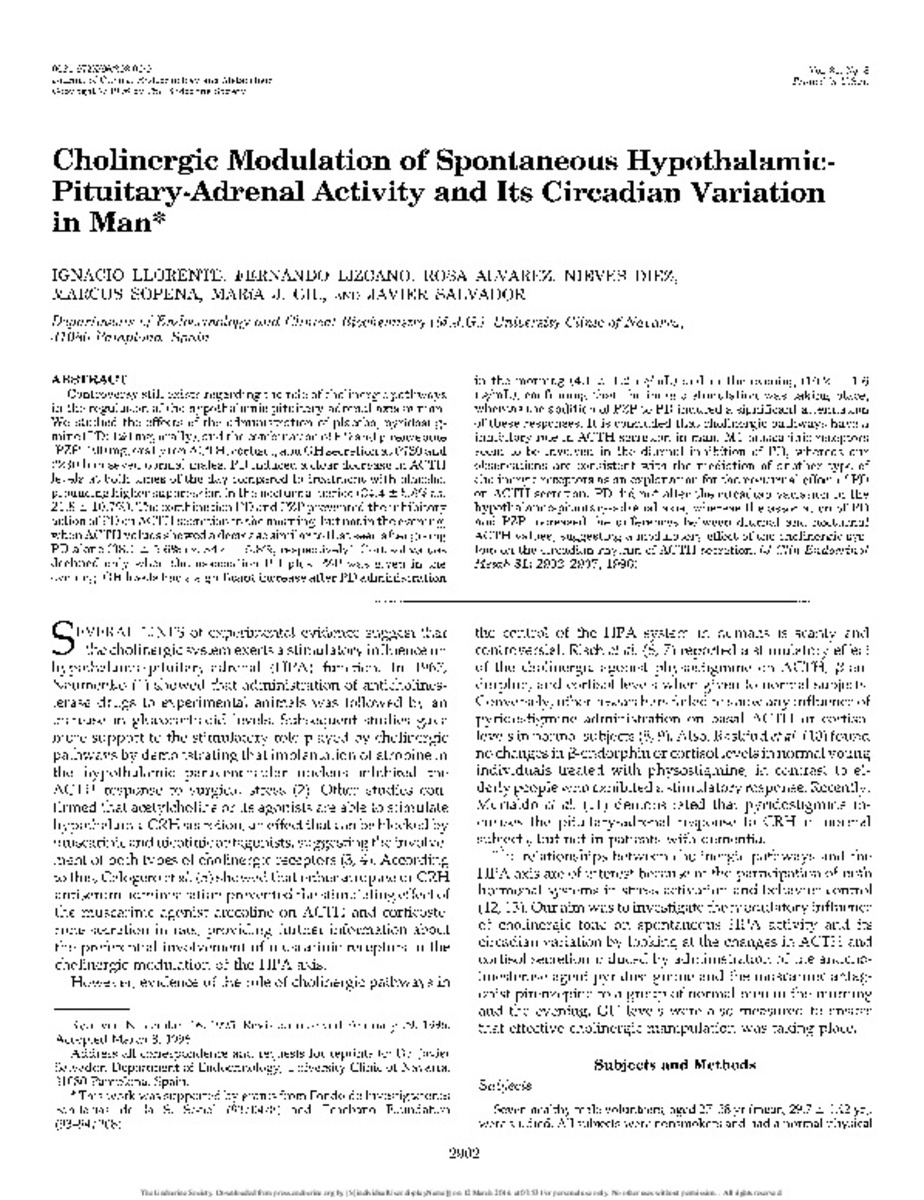Cholinergic modulation of spontaneous hypothalamic-pituitary-adrenal activity and its circadian variation in man
Palabras clave :
Circadian Rhythm
Hypothalamo-Hypophyseal
Parasympathetic Nervous
Pituitary-Adrenal System
Adrenocorticotropic Hormone
Cholinesterase
Fecha de publicación :
1996
Editorial :
The endocrine society
Cita:
Llorente I, Lizcano F, Alvarez R, Diez N, Sopena M, Gil MJ, et al. Cholinergic modulation of spontaneous hypothalamic-pituitary-adrenal activity and its circadian variation in man. J Clin Endocrinol Metab. 1996 Aug;81(8):2902-7.
Aparece en las colecciones:
Estadísticas e impacto
0 citas en

0 citas en

Los ítems de Dadun están protegidos por copyright, con todos los derechos reservados, a menos que se indique lo contrario.








